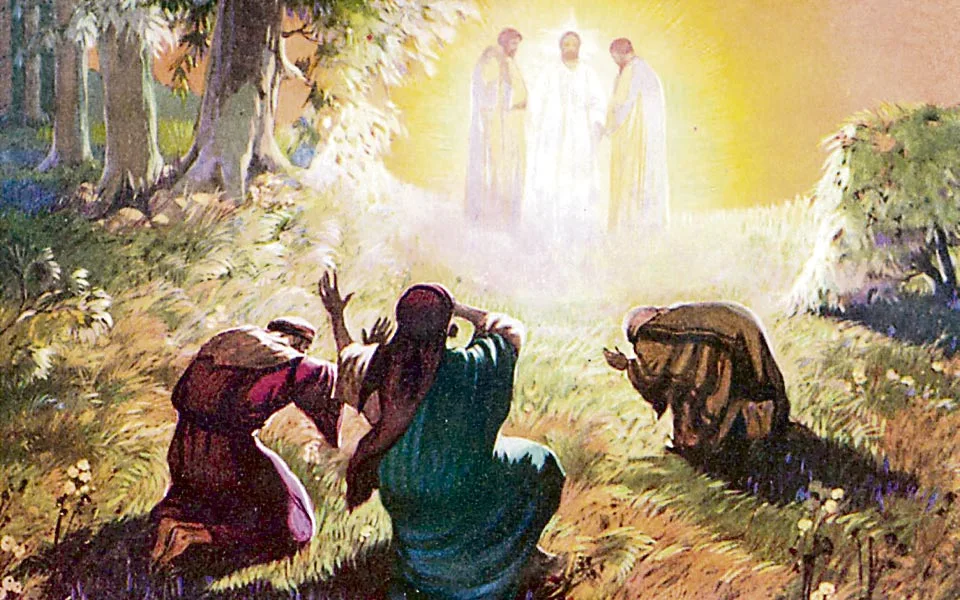Our normal mind-set is filled with deep prejudices, false values, illusions, and a grandiose sense of self-importance. They all join together to blind us to God’s presence in the depths of our heart and more especially in our world. Clearing this passage is the task of an authentic spiritual life. Self-knowledge, an appreciation and awareness of what is taking place within us, is a crucial element on this path.
The journey of self-knowledge is often described as moving from the false self to the true self. It is a new way of looking at ourselves, at others, and at the world. It is a transformation of consciousness. Growth in self-awareness also opens up the vast patterns of injustice in the world. In our day, this is especially manifest in the thoughtless and uncaring violations of the gift of God’s creation.
The false self is entrenched in our exaggerated sense of self-importance, our illusions of grandiosity, the blindness of our prejudices and addictions, and, most of all the unreality of our idols. Our heart creates many false centers in our attachments and the distorted use of God’s creatures. The heart becomes fragmented and flawed.
We tend to become blinded to our faults and failures. We emphasize the shortcomings of others. Jesus described it well. He highlighted our blindness to the log in our eye in contrast to our stress on the splinter in our neighbor’s eye (Matthew 7:4–5). Self-righteousness dominates our approach.
As we become aware of the false values flowing from our deficient heart, we come to a fork in the road. We are called to decide. Are we really motivated by the love of Christ? Or are their more hidden and more selfish values driving our actions? If we look at our likes and dislikes and our powerful emotions we can get a clue what is really driving our decisions. As we pause for reflection we will often be surprised at the hidden darkness driving our actions.
This is the dominance of our false self. We need to move away the choice of death, a decision that surrenders to the clamoring of the false self. We choose life when we yield to the mercy of God, which leads to the true self. At the heart of this encounter is the perennial challenge of knowing ourselves.
Teresa of Avila and the Mercy of God
For Teresa of Avila, the long search for self-knowledge led to two important facts that became the foundation of all her spirituality. First, she had a clear encounter with the false self, a distracted heart pulled in many directions leading away from God. In this disorderly heart she identified her sinfulness.
More importantly, she slowly accepted her helplessness to change. The second reality Teresa welcomed was this: she was loved and forgiven. She lived in a sea of mercy. This led Teresa to accept life rooted in her vulnerable sinfulness. At the same time, she experienced life immersed in the loving mercy of God. She was the creature caught in sin but a loved and forgiven child of God. God was the creator revealing his power in love and mercy.
Self-knowledge, Prayer, and Life
Teresa of Ávila was relentless in declaring the importance of self-knowledge for the spiritual journey, the journey to God in the center of our being.
Well now, it is foolish to think that we will enter heaven without entering ourselves, reflecting on our misery and what we owe God and begging Him often for mercy. (THE INTERIOR CASTLE, 2.1.11)
For Teresa, the mystery of God unfolds in the dynamic of the person’s prayer and life experience. Self-understanding brings this process together. When we accept the reality of God’s place and our place, God’s mercy is the dominant issue. As she grew in self-knowledge, Teresa grew steadily more compelling in her oft-repeated conviction: “My life is the story of God’s mercy.”
As we grow in self-knowledge, we will celebrate our lives as immersed in the sea of God’s mercy. Self-knowledge will gradually bring us to embrace the wonder of this gift. There is no better way to understand and enter into this relationship between God and ourselves than opening our hearts to Jesus and his call. Deep personal prayer will follow.
























